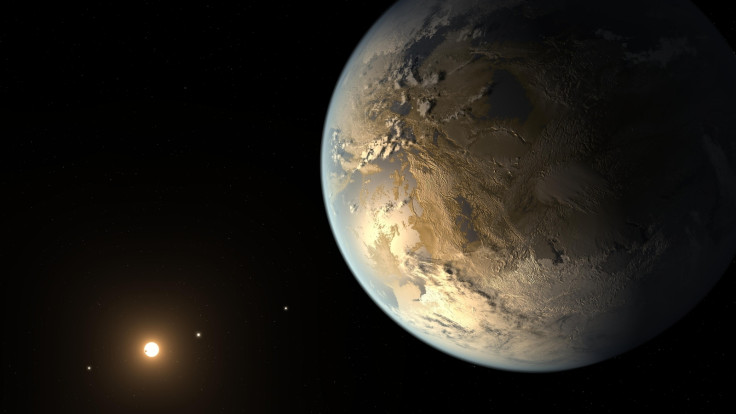A newly discovered exoplanet emerges as the 'king' of Kepler 88
The discovery was made by the team of scientists at the University of Hawaii's Institute of Astronomy.
A team of astronomers has discovered a massive exoplanet which is now considered the "king" of its solar system. The newly discovered planet is situated more than 1200 light-years away from earth and it is known as Kepler 88d.
The discovery was made by the team of scientists at the University of Hawaii's Institute of Astronomy and findings were published in last week's issue of Astronomical Journal. The third planet in the Kepler 88 system is named Kepler 88d, and it has dethroned Kepler 88c as the largest planet in the system.
It is three times the mass of Jupiter, the king of our solar system. Kepler 88d is discovered to be twice the mass of Saturn and 300 times that of earth and it is now considered the "most massive planet in this system."
"At three times the mass of Jupiter, Kepler-88 d has likely been even more influential in the history of the Kepler-88 system than the so-called King, Kepler-88 c, which is only one Jupiter mass," Dr. Lauren Weiss the lead researcher said in the statement as published on University's official website. "So maybe Kepler-88 d is the new supreme monarch of this planetary empire – the empress."
The discovery of the gigantic exoplanet was made using six years of data taken at W. M. Keck Observatory on Maunakea in Hawaii and graphics from High-Resolution Echelle Spectrometer (HIRES) instrument on the 10-meter Keck I telescope. It was further found out that the newly discovered planet in the system takes about four Earth years to orbit around the star Kepler 88 which is elliptical and not circular like our planet.
Kepler 88 is a Sun-like star in the constellation of Lyra and it has been a subject of interest for the researchers for its previously discovered two planets Kepler 88b and Kepler 88c. While Kepler 88b is the innermost planet in the system which is said to be the size of Neptune, Kepler 88c is about 60 percent as massive as Jupiter and was considered the biggest planet in the system until the discovery of Kepler 88d.

The discovery of the planet is considered significant for its potential impact on the solar system. Scientists believe that such exoplanets might have as much influence as Jupiter has on our solar system. In the past, these planets are believed to have "promoted the development of rocky planets and directed water-bearing comets toward them." Therefore, Weiss and her team are committed to hunting for such affluent planets in other planetary systems.
© Copyright IBTimes 2025. All rights reserved.





















